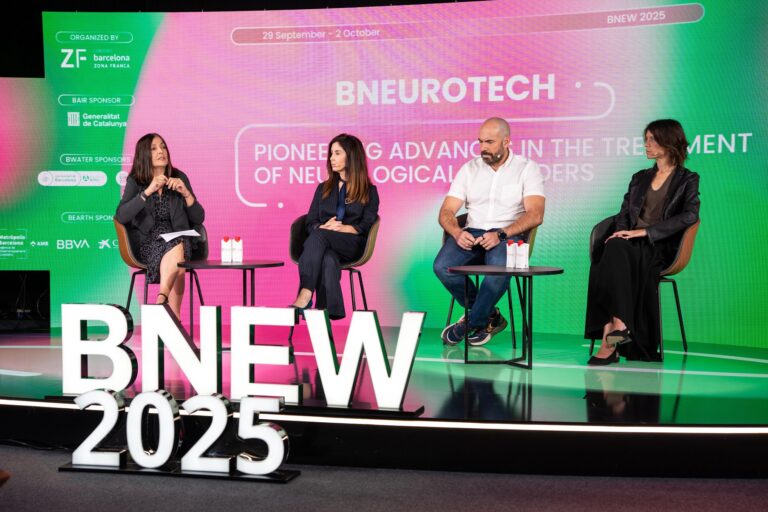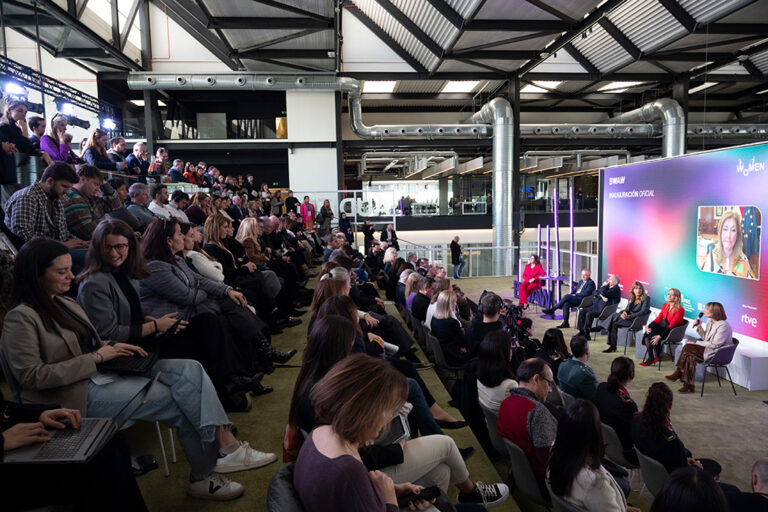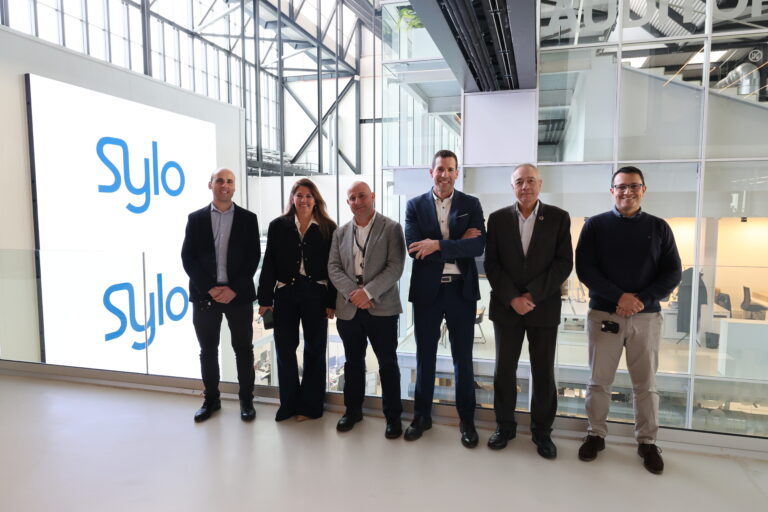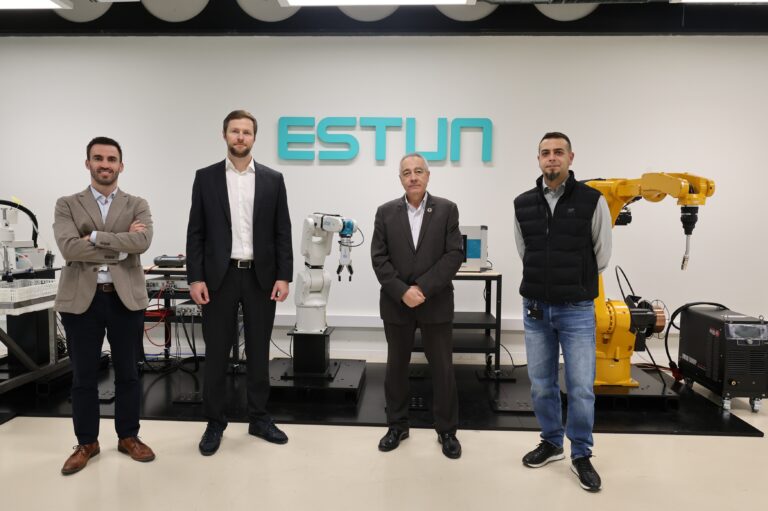BNEW opens the debate on the challenges of aviation, healthcare, and the digital industry in the new economy

1 de October de 2025
BNEW opens the debate on the challenges of aviation, healthcare, and the digital industry in the new economy
- Air safety advocacy, smart airports, life sciences, gender-focused healthcare, industrial automation, and the quantum revolution are some of the featured sessions.
- 5% of companies report using AI-powered applications in their daily operations, and 15.6% plan to adopt them. Among startups, this figure rises to 79.2% already using AI applications, with 9.3% planning to implement them soon, according to data from the 3rd BNEW 2025 New Economy Observatory.
Barcelona, 1st October 2025.- The sixth edition of the Barcelona New Economy Week (BNEW), organized by the Consorci de la Zona Franca de Barcelona (CZFB), has today opened the debate on the challenges and opportunities facing sectors such as aviation, healthcare, and the digital industry in the era of the new economy. These are the three verticals featured in the content program during the final two days of the event. Attendees experienced an intense third day, which began with the launch of the new content program and will conclude this evening with the award ceremony for the Best Startup 2025. The ceremony will take place at 7:30 PM at the DFactory Barcelona Auditorium, where the best emerging company from each vertical will be recognized.
Following the successful introduction of the Aviation vertical in last year’s edition, the BNEW 2025 content program delves even deeper into the intricacies of an industry that is both essential and largely unknown to the public.
Among the sessions held during this third day, a standout panel focused on the defense industry’s application of new technologies, featuring representatives from the Ministry of Defense. Another notable session explored cross-border air corridors for drones, with participation from Aeroports de Catalunya, the University of Barcelona, Pirineos Drone, and Pildo Labs.
In the words of Blanca Sorigué, CEO of CZFB: “BNEW is a dynamic and resilient event that evolves to meet the needs and concerns of the moment. Just as we dedicated one of the verticals to logistics in the first edition to highlight its importance during the pandemic, over the course of six editions we have continued to incorporate new sectors that we believe should be part of the conversation around the new economy. This is the case with the Aviation vertical, which we introduced in the previous edition and felt should continue to be highlighted this year—just as we did three editions ago with the Health vertical.”
In this regard, today’s program explored the fascinating world of corporate aviation, offering insights into how this exclusive system operates. Through the voices of various industry stakeholders, including corporate terminal managers, private flight operators, institutions, and handling companies, the value chain behind this premium service was thoroughly analyzed.
Another key challenge addressed in a separate panel was the attraction and retention of 4.0 talent in the aeronautical industry. This session featured contributions from organizations such as the Spanish Association of Air Transport Users, Entrepreneurs and Professionals, Open Cosmos, the i2cat Foundation, the Castelldefels School of Telecommunications and Aerospace Engineering (UPC), and the Institute of Education Sciences at URV.
Representatives from AENA, the Spanish Aviation Safety Agency (AESA), and Vueling also detailed how technological innovation is transforming airports into intelligent ecosystems—safer, more efficient, and passenger-centric—commonly known as smart airports.
During this roundtable, participants explored how digitalization is driving key advancements in air traffic management, process automation, airport security, and the personalization of the passenger experience. The experts concluded that technology is not only driving operational efficiency, sustainability, and resilience in the airport ecosystem of the future, but is also redefining the way we experience air travel, from airport access to landing.
Health: from life science to health with a gender perspective
The Health vertical featured insights from experts representing Hospital del Mar, Fundació Institut Guttmann, Time is Brain, Barcelona Beta Brain Research Center, AMB, Barcelona & Madrid Health Hub, Virmedex Virtual Experiences, Parc Taulí University Hospital of Sabadell, UOC, Vall d’Hebron University Hospital, the Catalan Society of Obstetrics and Gynecology, Hospital Clínic of Barcelona, and the Center for Health Analysis and Programs (CAPS) who have addressed, among other topics, pioneering advances in the treatment of neurological diseases, public-private collaboration to promote technology transfer in metropolitan municipalities or health with a gender perspective.
The digital transformation in Life Sciences and the humanization of technology toward person-centered care in the digital age also made their way into today’s program dedicated to the health sector. “Health is a topic that concerns absolutely everyone. We all care about it. The progress enabled by new technologies, as well as the strategic changes within organizations to adapt to new times, are issues that affect society as a whole. That’s why the hybrid format of the event allows access to all this content through the digital platform, as well as via our social media channels throughout the year. From the very first edition, we’ve considered BNEW to be a window of knowledge open to the world,” highlighted Blanca Sorigué, CEO of CZFB.
Automation, AI, and the Quantum Revolution
As revealed by the 3rd Observatory of the New Economy conducted within the framework of BNEW, 71.5% of companies report using AI-powered applications in their daily operations, while 15.6% plan to adopt them. Among startups, this figure rises to 79.2% already using AI applications, with 9.3% planning to implement them soon.
The same study shows that nearly all surveyed companies intend to invest in AI, Big Data, Blockchain, or other technologies, although in 83.3% of cases, the projected investment is below €100,000.
With a long-standing presence in the event’s lineup, the Digital Industry vertical once again brings BNEW audiences closer to concepts such as extended reality, industrial automation, robotics, the quantum revolution, artificial intelligence, venture capital, and cyber resilience, among others. Ultimately, the program dedicated to this sector explores how large, medium, and small companies—as well as institutions—are tackling the digital transformation we are experiencing in the era of the new economy.
Experts and representatives from companies and organizations such as Siemens, BonÀrea, SEAT, Barcelona Supercomputing Center, Spanish Society for Technological Transformation, Repsol, BBVA, Cecot, Frit Ravich, Barcelona Activa, Grow Venture Partners, Suma Capital, JME Ventures, Asabys, Irontec, Celsa Group, Ametic, Ibercaja, Caixabank, Fujitsu, Industrial Cybersecurity Center (CCI), Generalitat de Catalunya, Merlin Edged, Barcelona Regional or the Ministry of Defense shared their experience, knowledge and success stories, during these last two days of the event.
Overall, BNEW 2025 brings together a total of 320 speakers, 100 hours of content, and 66 sessions, across three television sets located at DFactory Barcelona. The event can also be followed via streaming through the BNEW digital platform, which this year introduces the virtual assistant BBot. This reinforces the international nature of the event, which already has registered participants from over 80 countries.



